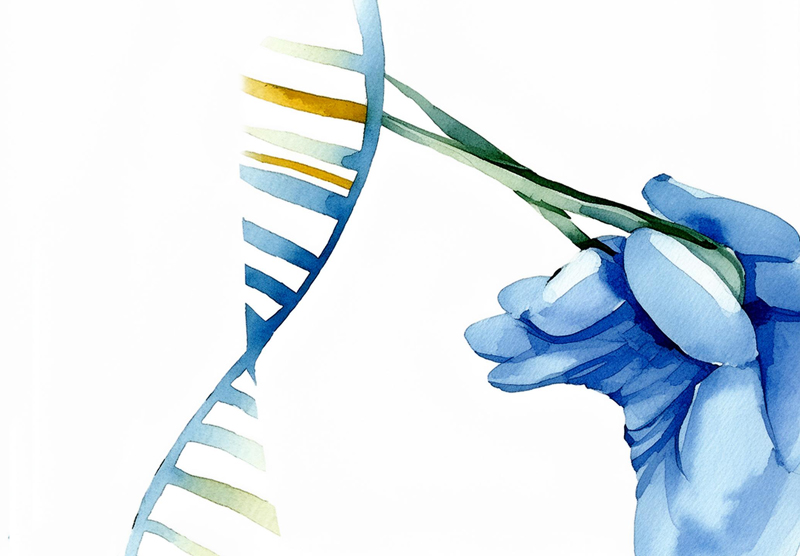
2024/06/21
Two projects from CIC bioGUNE granted from FUNDELA for ALS research
On World ALS Day, FUNDELA has awarded two significant grants to researchers from CIC bioGUNE, promoting significant advancements in the fight against this disease that affects 4,000 people in Spain.
Raúl Pérez Jiménez and Ylenia Jabalera, from the Synthetic Biology group, will receive funds for projects on genetic editing and correction of mutations associated with ALS.
On the occasion of World ALS Day, the Spanish Foundation for the Promotion of ALS Research (FUNDELA) has announced the awarding of two significant grants to researchers from the Cooperative Research Center in Biosciences (CIC bioGUNE), member of BRTA. These grants represent a crucial step in the fight against Amyotrophic Lateral Sclerosis (ALS), a neurodegenerative disease that affects nearly 4,000 people in Spain and currently has no cure.
ALS is a devastating disease that causes progressive and rapid paralysis of all voluntary control muscles, affecting the extremities as well as vital functions such as speech, swallowing, and breathing. Despite research efforts, there is currently no treatment that can significantly slow its progression. ALS manifests in both sporadic and genetic forms, with the latter responsible for between 5% and 10% of cases.
In this context of urgent need for scientific advancements, FUNDELA has awarded a total of €195,000 in its 8th Call for Research Grants to support various research projects in Spain. Among the beneficiaries are two researchers from the Synthetic Biology group at CIC bioGUNE:
Raúl Pérez Jiménez, Principal Investigator of the Synthetic Biology group, has received a grant for his project on the use of broad-range CRISPR systems to correct mutations associated with ALS in animal models. This approach could open new avenues for treating this disease by directly correcting the causative genetic mutations.
Ylenia Jabalera, a postdoctoral researcher in the same group, has been awarded a grant for the development and application of base editing systems. Her project aims to study and correct genetic mutations associated with ALS, offering the possibility of precise and personalized therapeutic interventions.
Genetic editing technologies, such as CRISPR-Cas systems, represent a revolution in modern biomedicine. These tools allow precise modification of DNA, offering the hope of directly correcting genetic mutations in patients. In the case of ALS, CRISPR systems open new possibilities for treatment and eventually a cure.
About CIC bioGUNE
The Centre for Cooperative Research in Biosciences (CIC bioGUNE), member of the Basque Research & Technology Alliance (BRTA), located in the Bizkaia Technology Park, is a biomedical research organisation conducting cutting-edge research at the interface between structural, molecular and cell biology, with a particular focus on generating knowledge on the molecular bases of disease, for use in the development of new diagnostic methods and advanced therapies.
About BRTA
BRTA is an alliance of 4 collaborative research centres (CIC bioGUNE, CIC nanoGUNE, CIC biomaGUNE y CIC energiGUNE) and 13 technology centres (Azterlan, Azti, Ceit, Cidetec, Gaiker, Ideko, Ikerlan, Leartiker, Lortek, Neiker, Tecnalia, Tekniker y Vicomtech) with the main objective of developing advanced technological solutions for the Basque corporate fabric.
With the support of the Basque Government, the SPRI Group and the Provincial Councils of the three territories, the alliance seeks to promote collaboration between the research centres, strengthen the conditions to generate and transfer knowledge to companies, contributing to their competitiveness and outspreading the Basque scientific-technological capacity abroad.
BRTA has a workforce of 3,500 professionals, executes 22% of the Basque Country's R&D investment, registers an annual turnover of more than 300 million euros and generates 100 European and international patents per year.
See a large version of the first picture





